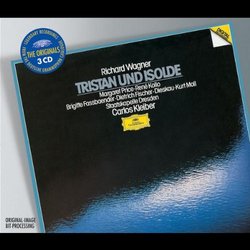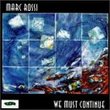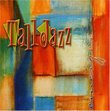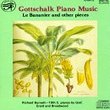| All Artists: Richard [Classical] Wagner, Carlos Kleiber, Dresden Staatskapelle, Anton Dermota, Brigitte Fassbaender, Dietrich Fischer-Dieskau, Eberhard Büchner, Kurt Moll, Margaret Price, René Kollo, Werner Gotz, Wolfgang Hellmich Title: Wagner: Tristan und Isolde Members Wishing: 0 Total Copies: 0 Label: Deutsche Grammophon Release Date: 3/8/2005 Genre: Classical Style: Opera & Classical Vocal Number of Discs: 3 SwapaCD Credits: 3 UPC: 028947753551 |
Search - Richard [Classical] Wagner, Carlos Kleiber, Dresden Staatskapelle :: Wagner: Tristan und Isolde
 | Richard [Classical] Wagner, Carlos Kleiber, Dresden Staatskapelle Wagner: Tristan und Isolde Genre: Classical
No Description Available No Track Information Available Media Type: CD Artist: WAGNER,R. Title: TRISTAN UND ISOLDE Street Release Date: 03/08/2005 |
Larger Image |
CD DetailsSynopsis
Product Description No Description Available No Track Information Available Media Type: CD Artist: WAGNER,R. Title: TRISTAN UND ISOLDE Street Release Date: 03/08/2005 Similar CDs
|
CD ReviewsGood value for the money Brad Alan Deamer | 04/05/2005 (4 out of 5 stars) "Whatever reservations one may have about this performance, it is good to have it reissued on CD at such a reasonable price. The remastering reduces the number of CDs from four to three--one for each act of the opera--and the ability to hear each act without interruption is a real advantage. The digital sound remains outstanding. The booklet is a stripped-down version of the one that accompanied the original (full-priced) CD edition: it still contains the libretto and translation, although the typeface is rather small. The reviews of the four-disc set posted elsewhere on this site cover most of the ground. Kleiber and the orchestra are magnificent, and the singing of Brigitte Fassbaender and Kurt Moll is hard to find fault with. Dietrich Fischer-Dieskau has his rough and gruff moments, but it can be argued that Kurwenal is that kind of a person. Rene Kollo's Tristan is efficient enough, although the overall impression is rather monochromatic, and he tenses up at some of the climaxes. For many listeners, the performance will stand or fall based on Margaret Price's highly individual Isolde. She has a large voice, but it is consistently soft-grained and flutey in timbre, with a very narrow vibrato. The low notes often have a curious "veiled" quality and do not always project well--even on this excellently engineered studio recording, there are a few moments when the orchestra covers her. Her enunciation of the German text is not always ideally distinct. For some listeners, her essentially laid-back temperament may not be fierce enough for parts of this role (e.g., Isolde's angry outbursts in Act One). Nevertheless, the fact remains that she sings the entire role without a moment of strain, unsteadiness, or insecure intonation. That is a feat in itself, and her phrasing is always musical and beautiful (of her recorded rivals, only Flagstad equals her in mastery of legato). I doubt that any one performance of Tristan und Isolde could ever do full justice to the work. To repeat: the low cost of this reissue makes it a worthwhile addition to any collection of complete opera recordings, particularly as a supplemental version of this particular work." The Ultimate Tristan und Isolde? Quite Possibly! Joseph Kimsey | Pac NW | 08/29/2005 (5 out of 5 stars) "This is a definitive example of the sum being much greater than its parts. I bought this on a whim because I've always loved Kleiber's conducting, and Tristan und Isolde is my favorite opera. Still, I didn't expect that much, mainly because a) when people talk about the ultimate Tristan recording, they NEVER mention this one. We always hear about Furtwangler and Bohm, with Karajan mentioned some, while Solti's attempt has been almost universally panned (not by me, by the way) b) Rene Kollo is an excellent heldentenor, but I was lead to believe (mistakenly) that Tristan was out of his league, and c) who is Margaret Price? Kleiber's Tristan doesn't have the vocal fireworks of Furtwangler, nor the steamy passion of Bohm, but it does possess a cohesiveness that both conductors lack. The Dresden orchestra has a massive sound, but unlike the Bohm version, we never lose any orchestral details. There is a certain menace to this Tristan that is wholly lacking from the others that I've heard. The monumental love duet in Act II has a frightening beauty, and the orgasmic conclusion to that same duet is most intense that I've heard. The beginning of Act III is painfully desolate, and Isolde's Leibestod the most transcendental. Kollo and Price are a woefully underrated Tristan and Isolde. Kollo sounds heroic, yet doomed and resigned (which is what Wagner had in mind all along), while Price is the most feminine Isolde on disc. Although I love the Nilson and Flagstad performances, it's nice to hear Isolde as an Irish princess, instead of a Nordic valkyrie, for a change. This set comes with full libretto, and each act is sensibly placed on a single disc. Although some wouldn't agree, this Tristan is essential." My Favorite Studio 'Tristan' -- but not the best! Haas | Brooklyn | 08/15/2006 (4 out of 5 stars) "There are so many 'Tristan' recordings out there. Are they all necessary? Absolutely. Are they all worth the price? Probably not. First things first: if you don't own the (sometimes over-hyped) Furtwangler recording from EMI, get it. It's magical. This Kleiber set, however, might be my overall favorite studio 'Tristan.' It is an imaginative modern experiment with inspired conducting and a superbly committed cast, plus digital sound at budget re-issue price. At the end of the day, it's all a matter of taste, but I say give the underdog a try.
For me, the most exciting and generally best conducted 'Tristans' tend to be live. Think about it: the young(er) Flagstad/Melchior combo with Reiner at Covent Garden, then the magnificent Erich Kleiber in Buenos Aires (also with Flagstad), and of course the famous Nilsson/Windgassen pairing for Bohm in 1966 (the essential complement to the Furtwangler, if only for Ludwig and Talvela). Sometimes poor sound quality and sadly muted singing can hinder the listening experience. But these conductors, especially E. Kleiber, had a strong sense of thematic unity and structure, which is oddly difficult to capture in the studio (though Furtwangler does it brilliantly). It comes as no surprise that Erich's son would get the job done right later in the century. Carlos Kleiber had a daring, inventive flair in the studio, demonstrated by his 1973 'Freischutz' all the way to this 'Tristan' from 1982. Some choices might seem controversial (e.g. using actors to read dialogue parts on his `Freischutz'), but he used the studio to great advantage--and rarely fails to draw the listener in immediately and hold attention. Yes, his reading here has been augmented by modern sound technology--but isn't that what Wagner would have done? Wagner wanted an Art of the Future, so why keep him in the nineteenth century? What's more, this isn't at all like the first digital opera recording, Solti's Figaro, which only skims the surface of Mozart's noble music and complex, zany characters. Carlos Kleiber's 'Tristan' features a deeply introspective reading of the score, sensitive playing from the Staatskapelle Dresden (my favorite orchestra), and astoundingly resonant performances from the singer-actors. Apparently Price's Isolde tends to make or break the experience: don't let that happen. She sings passionately and beautifully as Isolde, with firm, flexible, youthful-sounding voice and clear intonation. Her acting is also impressive: listen to her "Ich bin's" in the last act and you'll see what I mean. No, she couldn't have sung the role on stage - but please, why is that even part of the argument? It's just as asinine as the Flagstad/Schwarzkopf debate for Furtwangler. Get over it. Similarly, Rene Kollo is certainly no match for, say, Jon Vickers, but that kind of singing isn't needed for this 'Tristan.' He sings ardently, if a little uncomfortably at times, but he is certainly on par with Windgassen (for Bohm) and even Suthaus (for Furtwangler). Fassbaender is remarkable as Brangaene, rivaled only by Ludwig (for Bohm and Karajan). Stiff competition notwithstanding from Talvela, Weber and Ridderbusch, Moll is truly heartfelt as Marke, and certainly on par with Greindl. The uber-experienced Fischer-Dieskau completes the surprisingly well-rounded cast. Do your homework and get the best 'Tristan' for you. For other great studio work, be sure to look at the Furtwangler and the Karajan, but this recording is something special. Highly recommended. " |

 Track Listings (7) - Disc #1
Track Listings (7) - Disc #1


